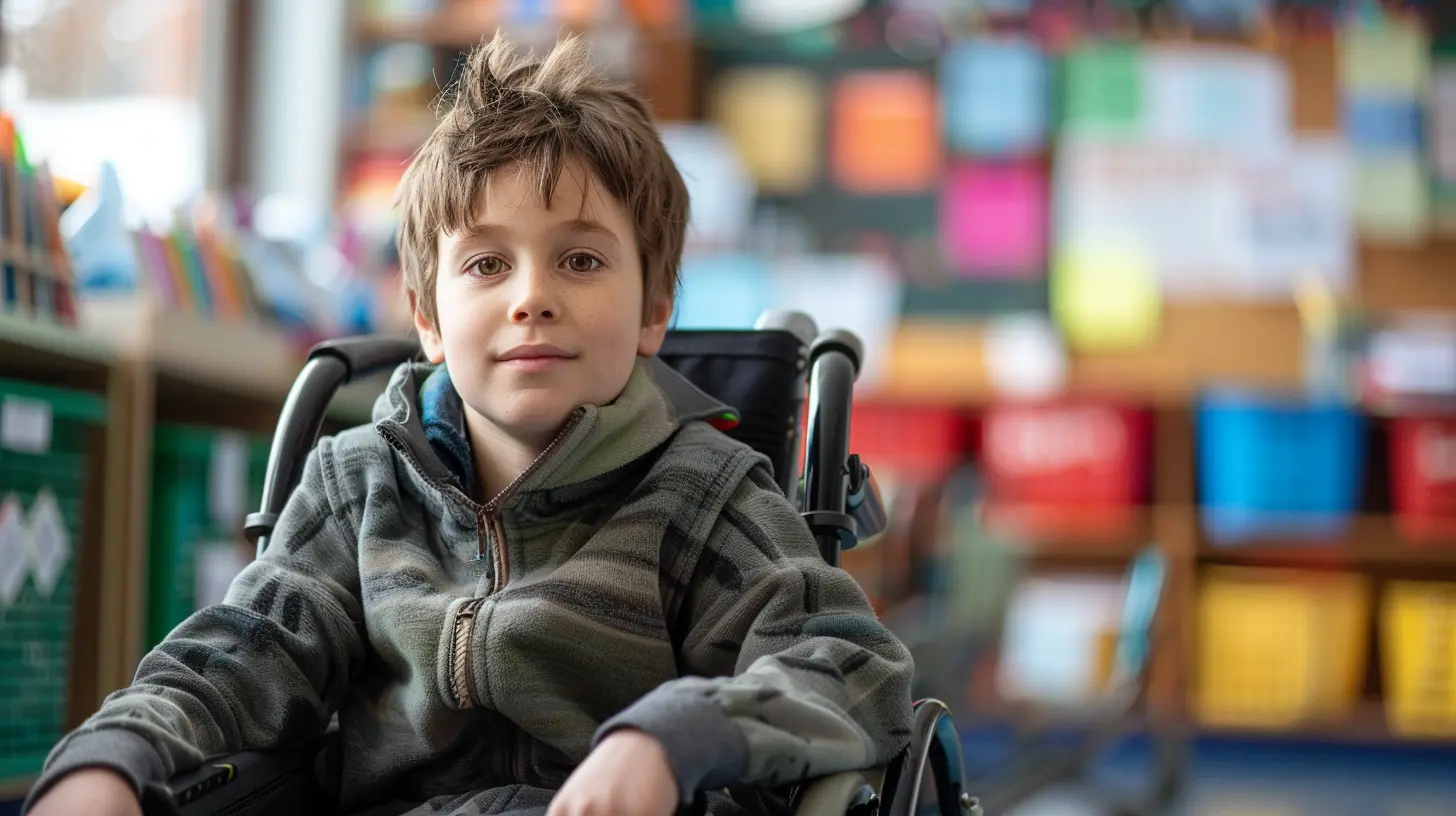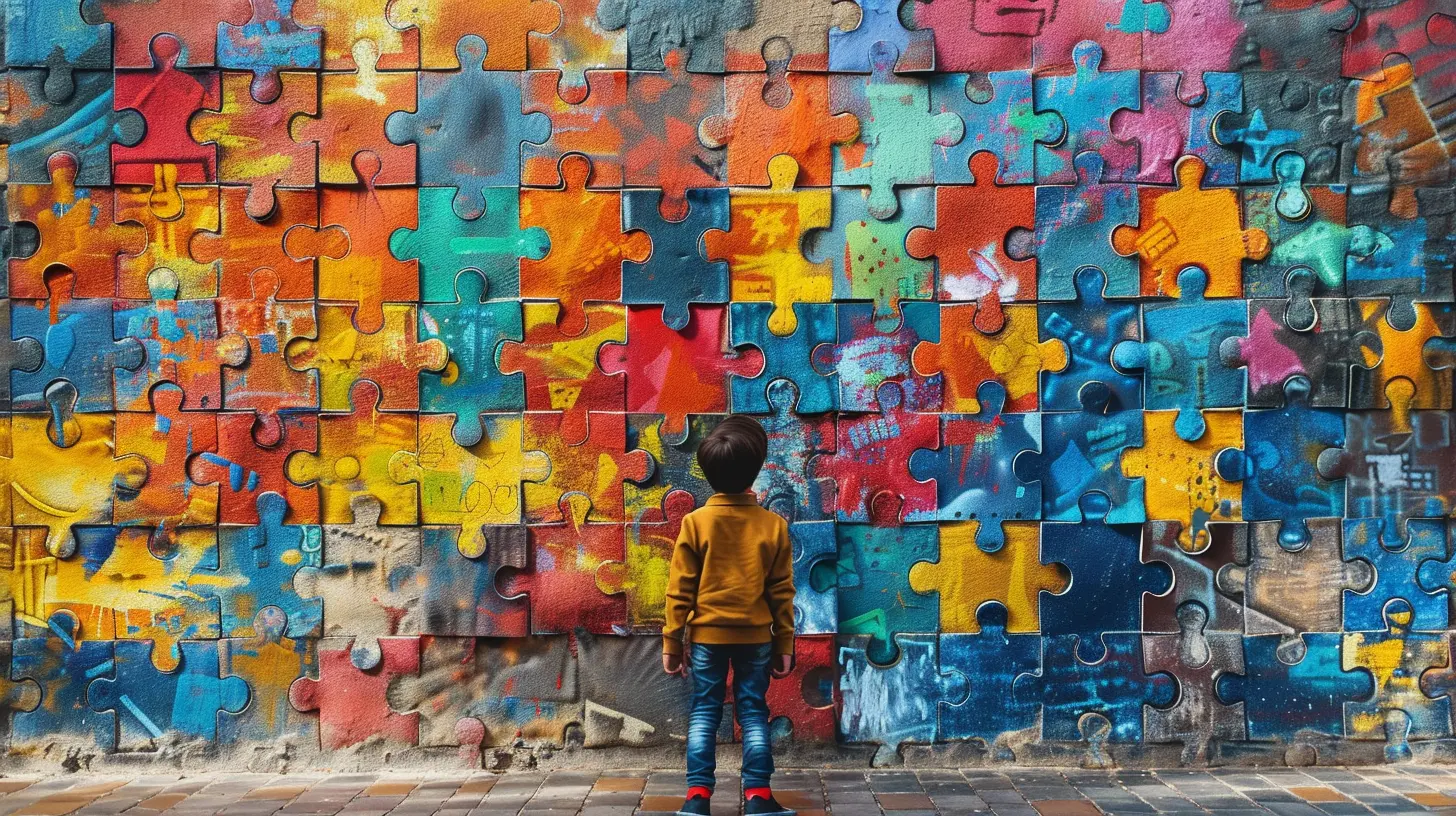Understanding Nonverbal Learning Disabilities: What You Need to Know
7 July 2025
When you hear the term "learning disability," you probably think of dyslexia or ADHD. But did you know there's another type of learning disability that often flies under the radar? It's called Nonverbal Learning Disability (NVLD), and despite its name, it has nothing to do with being nonverbal.
In this article, we’ll dive deep into what NVLD is, its symptoms, causes, and how to support someone who has it. Whether you're a parent, teacher, or just curious, this guide will help you understand NVLD in a way that's easy to grasp. 
What Is Nonverbal Learning Disability (NVLD)?
NVLD is a neurological condition that affects a person’s ability to understand nonverbal cues like body language, facial expressions, and tone of voice. People with NVLD often struggle with spatial awareness, motor coordination, and social interactions, even though they may have strong verbal skills.Think of it like a GPS that works well with written directions but struggles with maps. While someone with NVLD may excel in reading and memorization, they might find it difficult to understand visual concepts, organize their thoughts, or pick up on social cues. 
Common Signs and Symptoms of NVLD
1. Difficulty with Social Skills
People with NVLD often have trouble interpreting nonverbal communication. They might miss sarcasm, misunderstand facial expressions, or struggle to read body language. This can make social interactions confusing and even frustrating.2. Poor Motor Coordination
Tying shoelaces, riding a bike, or even using scissors can be challenging for someone with NVLD. Their fine and gross motor skills may be underdeveloped, leading to clumsiness or difficulty with activities that require coordination.3. Struggles with Spatial Awareness
Ever met someone who frequently bumps into objects or misjudges distances? That could be a sign of NVLD. Spatial reasoning issues make it hard for them to navigate physical spaces, read maps, or organize their thoughts visually.4. Strong Verbal Skills but Weak Comprehension
Children with NVLD often develop strong verbal skills early on. They may have an extensive vocabulary and enjoy talking, but they struggle with understanding the deeper meaning behind words, especially in abstract or figurative language.5. Difficulty with Math and Abstract Thinking
If math feels like an unsolvable puzzle, NVLD might be part of the reason. Many people with NVLD have trouble with numbers, patterns, and abstract concepts, making subjects like algebra or geometry particularly frustrating.6. Anxiety and Emotional Sensitivity
Since they struggle with social interactions and spatial awareness, individuals with NVLD often experience anxiety. They may feel overwhelmed in unfamiliar settings, have trouble making friends, or become easily frustrated when they don’t understand something.
What Causes NVLD?
Researchers aren’t entirely sure what causes NVLD, but it is believed to be linked to differences in brain development, specifically in the right hemisphere. This part of the brain controls nonverbal processing, spatial awareness, and social interactions, all areas where people with NVLD struggle.Some studies suggest a connection between NVLD and conditions like perinatal brain damage, genetic factors, or issues affecting white matter in the brain. However, more research is needed to pinpoint the exact cause. 
How Is NVLD Diagnosed?
NVLD isn't an officially recognized diagnosis in the DSM-5 (Diagnostic and Statistical Manual of Mental Disorders), which makes getting a diagnosis tricky. However, professionals like neuropsychologists and developmental specialists can assess cognitive and motor skills to determine if NVLD is present.Assessment Tests for NVLD
A comprehensive evaluation typically includes:- IQ and verbal reasoning tests – To compare verbal and nonverbal abilities.
- Motor skills assessments – Evaluating coordination and fine motor control.
- Social skills evaluations – Observing how well someone interprets social cues.
- Academic performance analysis – Looking for discrepancies in strengths and challenges.
If an individual shows a strong gap between verbal and nonverbal skills, they may be diagnosed with NVLD.
How to Support Someone with NVLD
If you or someone you know has NVLD, don’t worry—there are plenty of ways to make life easier. Here are some practical strategies to help:1. Strengthen Social Skills
- Teach social cues explicitly (e.g., explain body language, tone of voice).- Encourage role-playing exercises to practice conversations.
- Use visual aids like emotion charts to help recognize facial expressions.
2. Provide Academic Support
- Use step-by-step instructions for tasks like math problems and organization.- Incorporate hands-on learning for subjects like science and geometry.
- Provide extra time for tasks that require motor skills, such as writing or drawing.
3. Improve Spatial Awareness and Coordination
- Encourage activities like swimming or yoga, which enhance body awareness.- Use lined paper or graph paper for writing to help with alignment.
- Break down multi-step tasks into smaller, manageable pieces.
4. Manage Anxiety and Boost Confidence
- Offer a structured routine to create a sense of stability.- Provide reassurance and positive feedback regularly.
- Encourage hobbies and strengths to build self-esteem.
Myths and Misconceptions About NVLD
There are plenty of misconceptions surrounding NVLD. Let’s clear up some of the biggest ones:Myth #1: People with NVLD Aren’t Smart
Truth: Many individuals with NVLD have above-average intelligence. Their struggles are not due to a lack of intelligence but rather differences in how their brain processes information.Myth #2: NVLD and Autism Are the Same
Truth: While NVLD shares some traits with autism (such as social difficulties), they are distinct conditions. A key difference is that people with NVLD usually have strong verbal skills, whereas many individuals with autism struggle with communication in different ways.Myth #3: Kids with NVLD Will “Outgrow” It
Truth: NVLD is a lifelong condition. However, with the right support and strategies, individuals can learn to manage their challenges effectively.The Importance of Early Intervention
Catching NVLD early can make a huge difference. The earlier kids receive support, the better they can develop coping strategies. Schools, therapists, and parents play a key role in helping children with NVLD thrive.How Schools Can Help
- Providing individualized learning plans (IEPs).- Using assistive technology, such as speech-to-text apps.
- Offering occupational therapy for motor skill improvement.
How Parents Can Help
- Advocating for their child’s needs at school.- Encouraging open discussions about emotions and frustration.
- Exposing their child to different social scenarios in a safe, supportive way.
Final Thoughts
Nonverbal Learning Disability is often overlooked, but that doesn’t mean it’s not real. It can impact every aspect of a person’s life—from school to friendships to daily routines.The good news? With the right support, patience, and understanding, individuals with NVLD can thrive. Whether it’s breaking down tasks into simpler steps, encouraging social skill development, or helping with spatial awareness, small changes can make a big difference.
If you suspect that you or someone you know has NVLD, don’t hesitate to seek professional guidance. The sooner NVLD is recognized, the sooner strategies can be put in place to help navigate life more confidently.
all images in this post were generated using AI tools
Category:
Learning DisabilitiesAuthor:

Bethany Hudson
Discussion
rate this article
1 comments
Pierce McCaw
This article provides a valuable overview of nonverbal learning disabilities (NVLD), highlighting key characteristics and challenges faced by individuals. Understanding NVLD is crucial for educators and parents to better support and adapt teaching strategies for affected students. Great resource!
July 29, 2025 at 2:46 AM

Bethany Hudson
Thank you for your thoughtful comment! I'm glad you found the article helpful in understanding NVLD and its impact on students.


